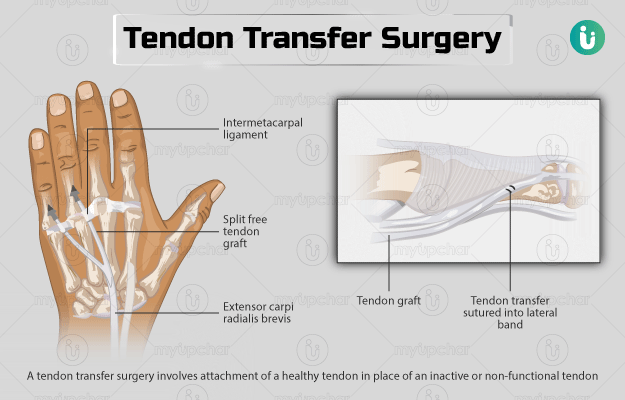Summary
A tendon transfer surgery involves attachment of a healthy tendon in place of an inactive or non-functional tendon. The procedure is carried out to restore loss of movement of a joint.
Before the surgery, your doctor will ask you about your medical history, medications that you take, and your lifestyle habits. You will need to fast starting from midnight before the surgery until you are given permission to eat or drink after the procedure. The surgery may either be done under general, local or regional anaesthesia. After the surgery, you will need a plaster cast to protect the surgical area for a while. Recovery after the surgery may include a set of exercises recommended by a physiotherapist. You will need a follow-up to get your stiches removed and plaster cast changed a few weeks after the operation.






































